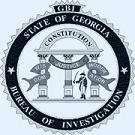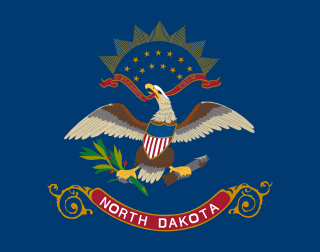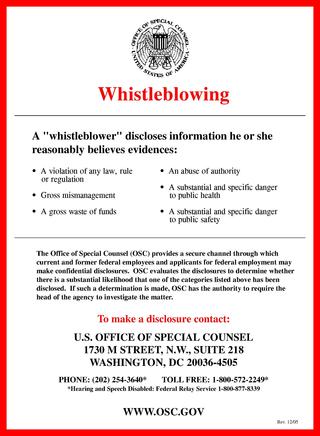| Department overview | |
|---|---|
| Jurisdiction | Illinois |
| Employees | 107 |
| Annual budget | $12,495,400 [1] |
| Department executive |
|
| Website | www |
The Illinois Department of Labor (IDOL) is the code department [2] [3] of the Illinois state government that is responsible for the administration and enforcement of more than 20 labor and safety laws. [4] Its director is Jane Flanagan, who was appointed in by Governor J. B. Pritzker. [5]
Beginning in 2015, it will also be responsible for enforcing the Job Opportunities For Qualified Applicants Act, which prohibits employers from inquiring into, considering, or requiring the disclosure of a job applicant's criminal history or background on a job application. [6]

The United States Department of Labor (DOL) is one of the executive departments of the U.S. federal government. It is responsible for the administration of federal laws governing occupational safety and health, wage and hour standards, unemployment benefits, reemployment services, and occasionally, economic statistics. It is headed by the secretary of labor, who reports directly to the president of the United States and is a member of the president's Cabinet.
The Occupational Safety and Health Administration is a regulatory agency of the United States Department of Labor that originally had federal visitorial powers to inspect and examine workplaces. The United States Congress established the agency under the Occupational Safety and Health Act, which President Richard M. Nixon signed into law on December 29, 1970. OSHA's mission is to "assure safe and healthy working conditions for working men and women by setting and enforcing standards and by providing training, outreach, education, and assistance." The agency is also charged with enforcing a variety of whistleblower statutes and regulations. OSHA's workplace safety inspections have been shown to reduce injury rates and injury costs without adverse effects on employment, sales, credit ratings, or firm survival.
A background check is a process a person or company uses to verify that an individual is who they claim to be, and this provides an opportunity to check and confirm the validity of someone's criminal record, education, employment history, and other activities from their past. The frequency, purpose, and legitimacy of background checks vary among countries, industries, and individuals. An employment background check typically takes place when someone applies for a job, but it can also happen at any time the employer deems necessary. A variety of methods are used to complete these checks including comprehensive database search and personal references.

The Government of Illinois, under Illinois' Constitution, has three branches of government: Executive, Legislative, and Judicial. The State's executive branch is split into several statewide elected offices, with the Governor as chief executive and head of state, and has numerous departments, agencies, boards and commissions. Legislative functions are granted to the General Assembly, a bicameral body consisting of the 118-member House of Representatives and the 59-member Senate. The judiciary is composed of the Supreme Court of Illinois and lower courts.

The Georgia Bureau of Investigation (GBI) is the state bureau of investigation of the U.S. state of Georgia. It is an independent, statewide agency that provides assistance to Georgia's criminal justice system in the areas of criminal investigations, forensic laboratory services, and computerized criminal justice information. Its headquarters is located in unincorporated DeKalb County, near Decatur and in Greater Atlanta.

The New Jersey Department of Corrections (NJDOC) is the government agency responsible for operations and management of prison facilities in the U.S. state of New Jersey. The New Jersey Department of Corrections operates 9 correctional facilities, 11 Residential Community Release Programs, and 1 Assessment Center. The department is headquartered in Trenton.
Employment discrimination law in the United States derives from the common law, and is codified in numerous state, federal, and local laws. These laws prohibit discrimination based on certain characteristics or "protected categories". The United States Constitution also prohibits discrimination by federal and state governments against their public employees. Discrimination in the private sector is not directly constrained by the Constitution, but has become subject to a growing body of federal and state law, including the Title VII of the Civil Rights Act of 1964. Federal law prohibits discrimination in a number of areas, including recruiting, hiring, job evaluations, promotion policies, training, compensation and disciplinary action. State laws often extend protection to additional categories or employers.
The Illinois Department of Natural Resources (IDNR) is the code department of the Illinois state government that operates the state parks and state recreation areas, enforces the fishing and game laws of Illinois, regulates Illinois coal mines, operates the Illinois State Museum system, and oversees scientific research into the soil, water, and mineral resources of the state. In 2017, the Illinois Historic Preservation Division was added to its portfolio. It is headquartered in the state capital of Springfield.

In the United States, the minimum wage is set by U.S. labor law and a range of state and local laws. The first federal minimum wage was instituted in the National Industrial Recovery Act of 1933, signed into law by President Franklin D. Roosevelt, but later found to be unconstitutional. In 1938, the Fair Labor Standards Act established it at 25¢ an hour. Its purchasing power peaked in 1968, at $1.60 In 2009, it was increased to $7.25 per hour, and has not been increased since.

The North Dakota State Cabinet is part of the executive branch of the Government of the U.S. state of North Dakota, consisting of the appointed heads of the North Dakota state executive departments. The State Cabinet has evolved into a major part of the State government.

E-Verify is a United States Department of Homeland Security (DHS) website that allows businesses to determine the eligibility of their employees, both U.S. and foreign citizens, to work in the United States. The site was originally established in 1996 as the Basic Pilot Program to prevent companies from hiring people who had violated immigration laws and entered the United States illegally. In August 2007, the DHS started requiring all federal contractors and vendors to use E-Verify. The Internet-based program is free and maintained by the United States government. While federal law does not mandate use of E-Verify for non-federal employees, some states have mandated use of E-Verify or similar programs, while others have discouraged the program.

In California, the Employment Development Department (EDD) is a department of the state government that administers Unemployment Insurance (UI), Disability Insurance (DI), and Paid Family Leave (PFL) programs. The department also provides employment service programs and collects the state's labor market information and employment data. EDD is one of California's three major taxation agencies, alongside California Department of Tax and Fee Administration and the Franchise Tax Board. In addition to collecting unemployment insurance taxes, the department administers the reporting, collection, and enforcement of the state's personal income taxes.
The New York State Department of Labor is the department of the New York state government that enforces labor law and administers unemployment benefits.

The Florida Department of Law Enforcement (FDLE) is a state-wide investigative law enforcement agency within the state of Florida. The department formally coordinates eight boards, councils, and commissions. FDLE's duties, responsibilities, and procedures are mandated through Chapter 943, Florida Statutes, and Chapter 11, Florida Administrative Code. FDLE is headed by a commissioner who reports to the Florida Cabinet, which is composed of the governor, the attorney general, the chief financial officer, and the commissioner of agriculture. The commissioner is appointed to his position by the governor and cabinet and confirmed by the Florida Senate.

The California Labor Code, more formally known as "the Labor Code", is a collection of civil law statutes for the State of California. The code is made up of statutes which govern the general obligations and rights of persons within the jurisdiction of the State of California. The stated goal of the Department of Industrial Relations is to promote and develop the welfare of the wage earners of California, to improve their working conditions and to advance their opportunities for profitable employment."

A whistleblower is a person who exposes any kind of information or activity that is deemed illegal, unethical, or not correct within an organization that is either private or public. The Whistleblower Protection Act was made into federal law in the United States in 1989.
The Illinois Department of Central Management Services (CMS) is a code department of the Illinois state government that is generally responsible for certain state properties, acquisitions, and services.

The Wisconsin Department of Workforce Development (DWD) is an agency of the Wisconsin state government responsible for providing services to Wisconsin workers, employers, and job-seekers to meet Wisconsin's workforce needs. To effect its mission, the Department administers unemployment benefits and workers' compensation programs for the state of Wisconsin; ensures compliance with state laws on wages and discrimination; provides job resources, training, and employment assistance for job-seekers; and engages with employers to help them find and maintain adequate staffing for their businesses.
The Illinois Department of Employment Security (IDES) is the code department of the Illinois state government that administers state unemployment benefits, runs the employment service and Illinois Job Bank, and publishes labor market information. As of 12 January 2015, Jeffrey D. Mays was the Director of Employment Security.